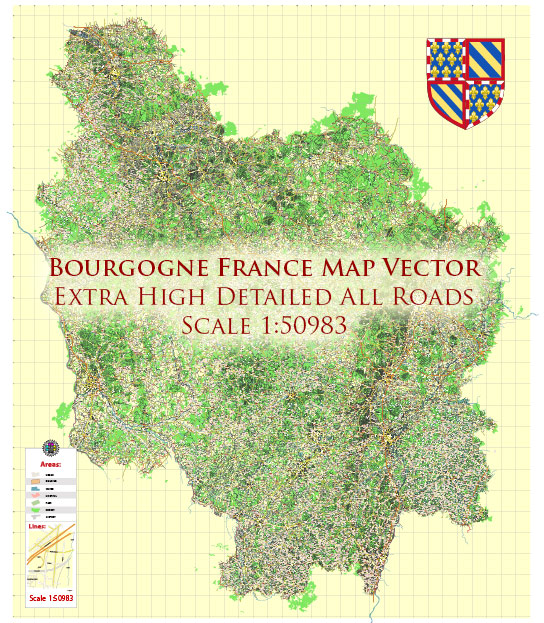Burgundy, or Bourgogne in French, is a region in east-central France known for its wine production and scenic landscapes. The region’s water resources are essential for agriculture, industry, and the well-being of its residents. Here’s an overview of the water resources in Bourgogne, France:
- Rivers and Streams: Bourgogne is crossed by several major rivers and their tributaries, including the Saône, the Yonne, and the Loire. These rivers are vital for transportation, irrigation, and supporting the region’s diverse ecosystems.
- Lakes and Reservoirs: The region features various lakes and reservoirs, such as Lake Settons and Lake Pannecière, which serve multiple purposes, including water supply, recreational activities, and maintaining biodiversity.
- Groundwater: Groundwater is a crucial source of water in Bourgogne, particularly for agricultural and industrial use. The region’s aquifers provide water to a significant portion of the population.
- Rainfall: Rainfall is the primary source of freshwater in Bourgogne. The region experiences a temperate climate with moderate precipitation throughout the year. This rainfall helps replenish surface water bodies and groundwater resources.
- Water Management: Bourgogne, like other regions in France, has a well-developed system for managing its water resources. This includes water distribution, wastewater treatment, and water quality monitoring. The management of water resources is overseen by regional and local authorities.
- Agriculture: Agriculture is a significant consumer of water in Bourgogne, primarily for irrigating crops, particularly vineyards. Sustainable farming practices and water conservation efforts are crucial to maintaining water resources in the face of agricultural demands.
- Environmental Concerns: Ensuring the health of water resources in Bourgogne is essential for preserving the region’s ecosystems and biodiversity. Conservation efforts, wetland protection, and water quality monitoring are critical for safeguarding the environment.
- Industrial and Urban Usage: Industries and urban areas in Bourgogne also rely on water for various purposes. The responsible use of water resources is essential to balance the needs of the population, industry, and the environment.
Bourgogne’s water resources are carefully managed to ensure the sustainable use of water for the region’s diverse needs, including agriculture, industry, and the environment. Water management practices, regulations, and conservation efforts play a significant role in maintaining the health of these resources.


 Author: Kirill Shrayber, Ph.D. FRGS
Author: Kirill Shrayber, Ph.D. FRGS